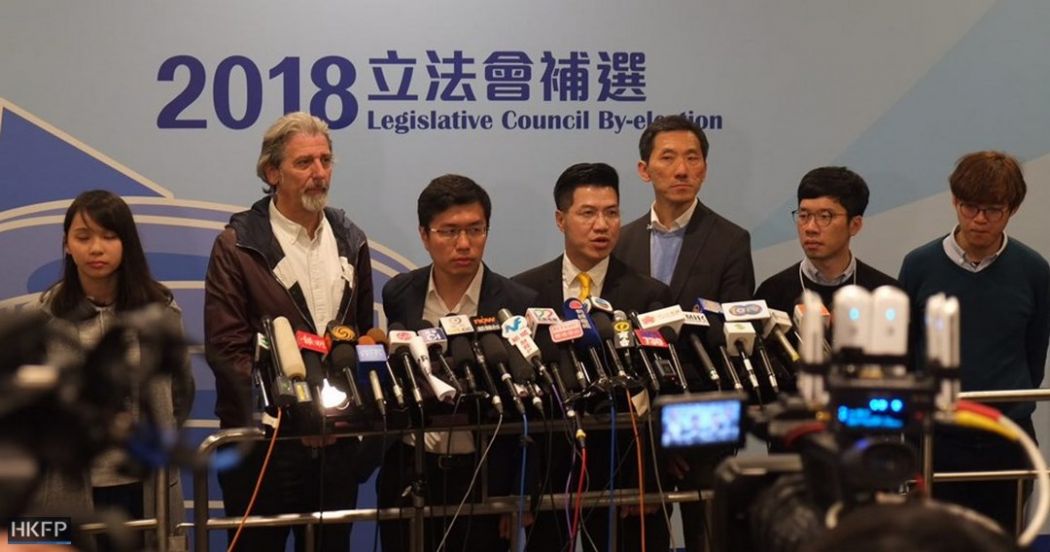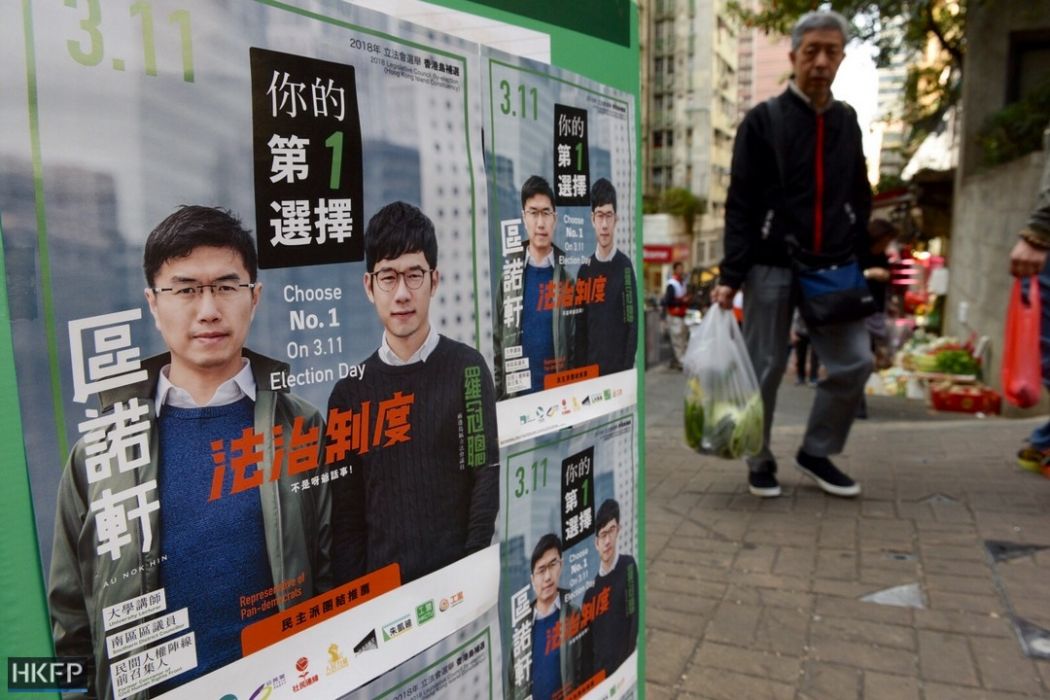Almost all the analysis of this week’s by-election results gives the strong impression that this was a ‘stunning defeat’ for the democrats, some go further and describe it as a ‘crushing setback’. Even more surprising is the outbreak of self-flagellation from the democratic camp itself. Yet rather more careful analysis is required before drawing such dramatic conclusions.
Let’s start with the obvious point – yes, this definitely was not a good result for the democrats, but there is no need to get overexcited here.

In the three geographical constituencies the pro-democracy camp secured 426,003 votes or over 47 per cent of the popular vote, while the pro-government camp secured 391,017 or over 43 per cent of votes cast.
This is a far cry from the days when the democrats won something like 60 per cent of the popular vote. However, if you compare this week’s by-election with the previous high point of success achieved by the pro-government camp, very little has changed.
In the 2012 LegCo elections, the anti-democrats or ‘loyalists,’ as they prefer to call themselves, won almost 43 per cent of the votes cast – in other words, more or less exactly the same result seen this week. This is despite pouring far more money and resources into this campaign than the democrats could possibly muster.
The democrats meanwhile suffered a more serious decline from over 56 per cent six years ago to this week’s 47 per cent.

The difference in a territory-wide election is, of course, a far greater proliferation of candidates and a higher turnout, which is generally assumed to be conducive to democrat success.
In addition there is the matter of the Architectural sector by-election result, which gave the seat to the pro-government candidate Tony Tse. However this “win” from the previous democratic incumbent Edward Yiu (who also lost this time around in Kowloon West) is far less of a victory than it has been played up to be, because when Yiu won the seat it was largely the result of a split in the pro-government camp votes, allowing him to slip through the middle.
This time the pro-democracy candidate Paul Zimmerman more or less held onto all the votes that previously went to Yiu, but there was no chance of slipping through the middle, as the iron discipline on the pro-government side ensured that it only had one flag bearer.
Another matter confirmed in this by-election is that so-called middle of the road and unaffiliated candidates are largely irrelevant to voters, despite the constant muttering about the need for a middle way.

The significant exception here is the performance of the indefatigable Christine Fong in New Territories East. She gained 64,905 votes – or almost a third the number of votes secured by the winning candidate, Gary Fan, the democrat. Fong, a former Liberal Party member, is not exactly part of the pro-government camp, nor is she an obvious democrat. However her success is due, as this resident of the district can testify, to consistent and high-profile activity in the locality, which is not confined to election periods. If the message of Fong’s result is that hard work pays off, it’s almost certainly correct, but the cruel reality is that she was far from winning; at least this time around.
The big picture however is clear; the democrats still command majority support in the community, but active backing for the opposition camp is declining.
The words “active backing” are used here with some care because it appears that many of those who support localism and did so much to propel localists into the Legislature during the last LegCo election were not inclined to support any of the pro-democrats this time around. It should however be noted that Demosisto – including its leaders Joshua Wong, the expelled former legislator Nathan Law and the disqualified Hong Kong Island candidate Agnes Chow – was extremely active in this campaign and may well have contributed to the democrat victory in the Hong Kong Island constituency.
However, elsewhere there is evidence of a lack of enthusiasm among those who might be described as being on the more radical fringe of the democracy movement. This is understandable and there are plenty of reasons for cynicism from those who voted for candidates who have now been ousted from their seats. The democratic camp clearly has a job to do in persuading these people that cynicism is little more than self-indulgence. They should, as a minimum, be persuaded by the shining example of Nathan Law, who took his expulsion from LegCo on the chin, got a taste of incarceration and then dusted himself down and went back to work for the cause of democracy.

And now we come to the biggest takeaway from this election – despite it being painted as a great success for the anti-democrats it was hardly sufficient to persuade the grey men in Beijing that it is safe to hold free and fair elections for the administration of Hong Kong. Even if their kowtowing supporters in the Hong Kong media paint a different picture, these political realists are well aware that a firm majority of people in the SAR remain in favour of democracy.
As the German writer Bertolt Brecht ironically suggested after the 1953 uprising against the East German Communist regime: “Are we the electorate they deserve?” Or, as he mockingly suggested, had the people forfeited the government’s confidence so: “wouldn’t it be simpler…if the government dissolved the people and elected another?”
Not-for-profit, run by journalists and completely independent. Contribute to our critical month-long HK$1m Funding Drive, help safeguard our independence and secure our operations for another year. Read how carefully we spend every cent in our Annual/Transparency Report.

